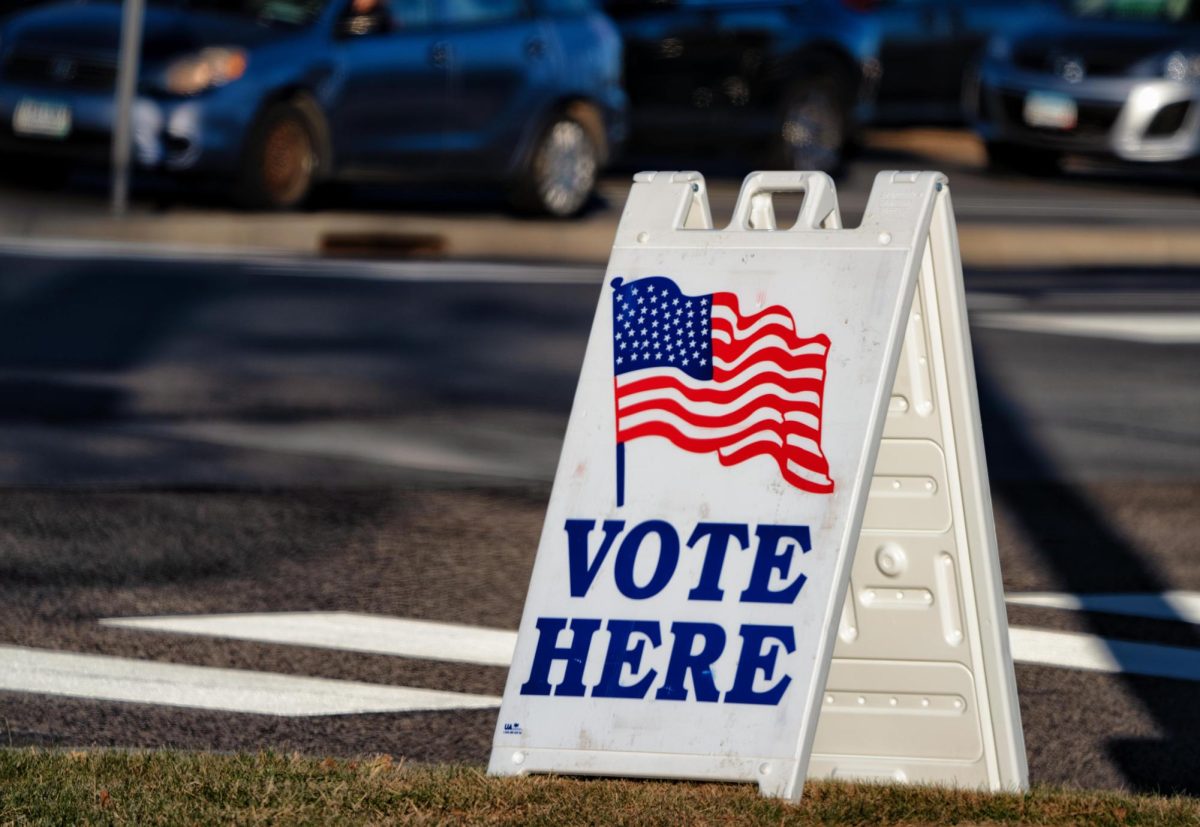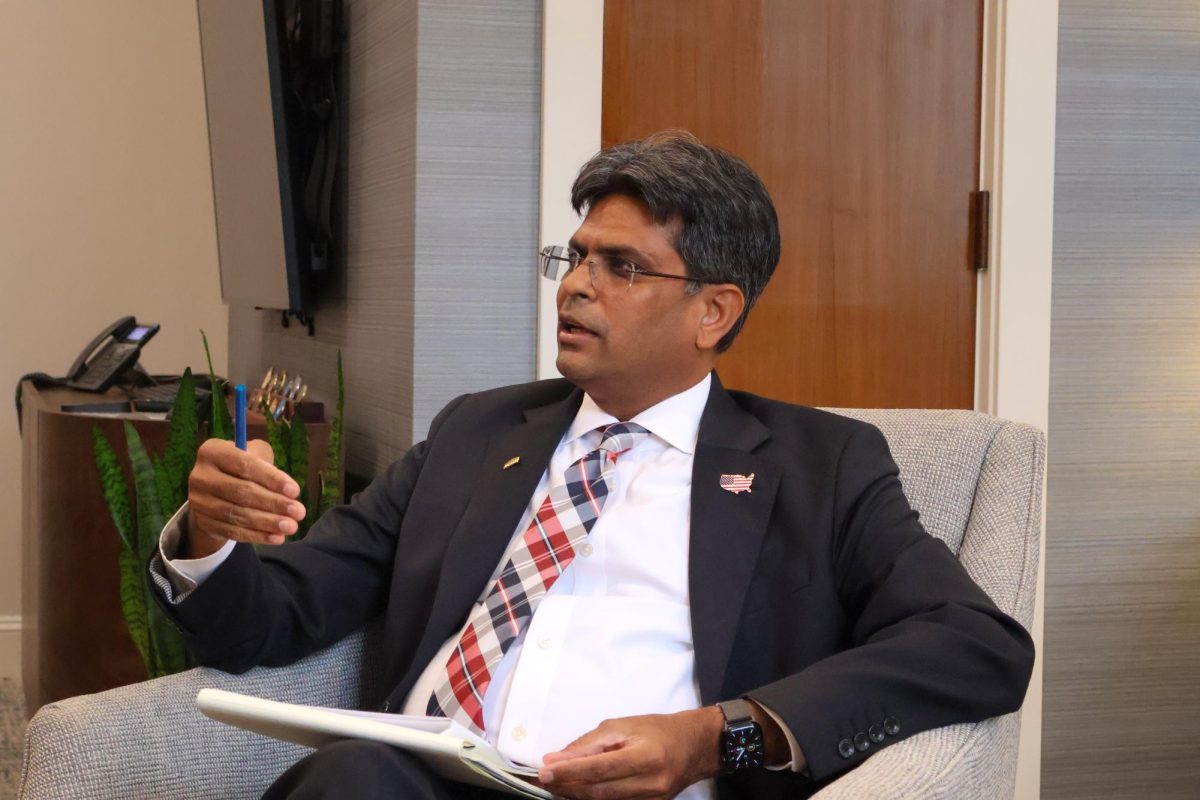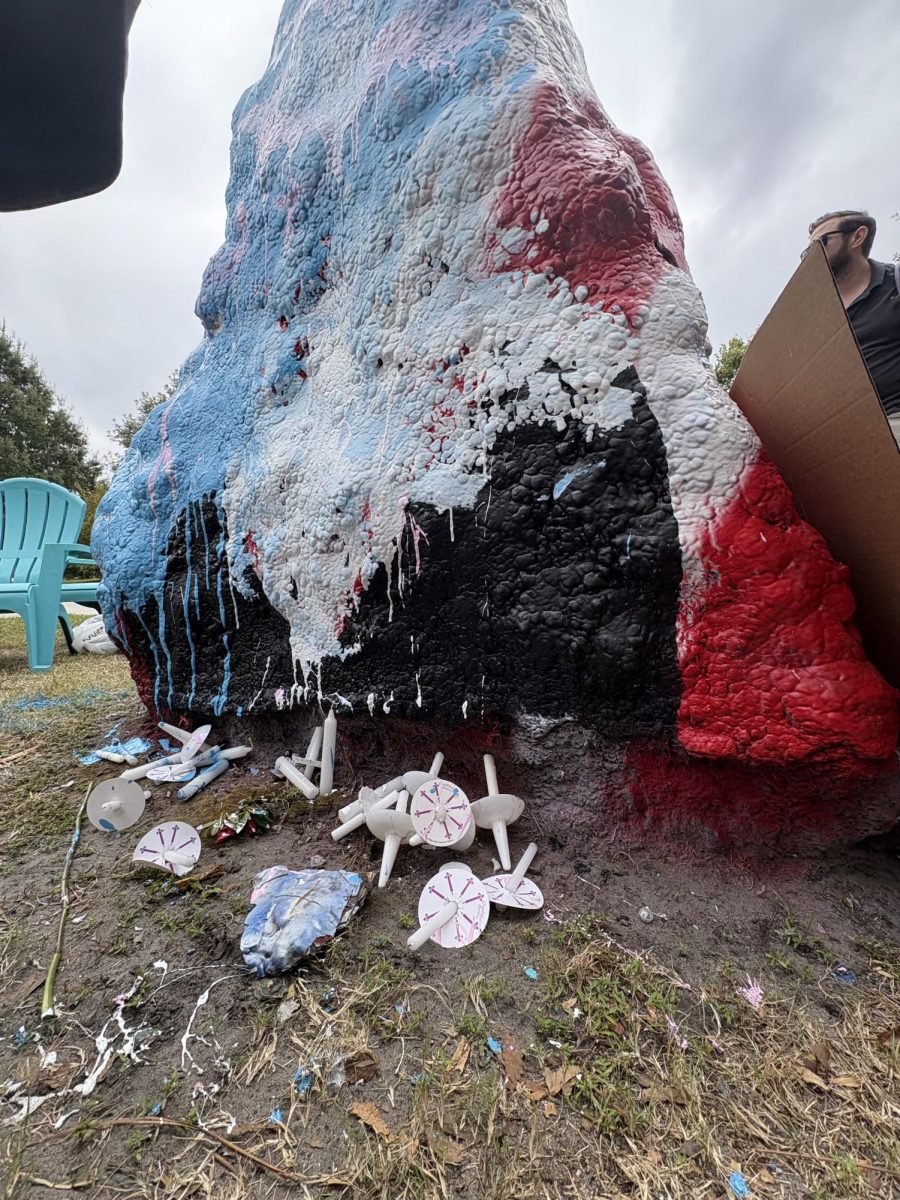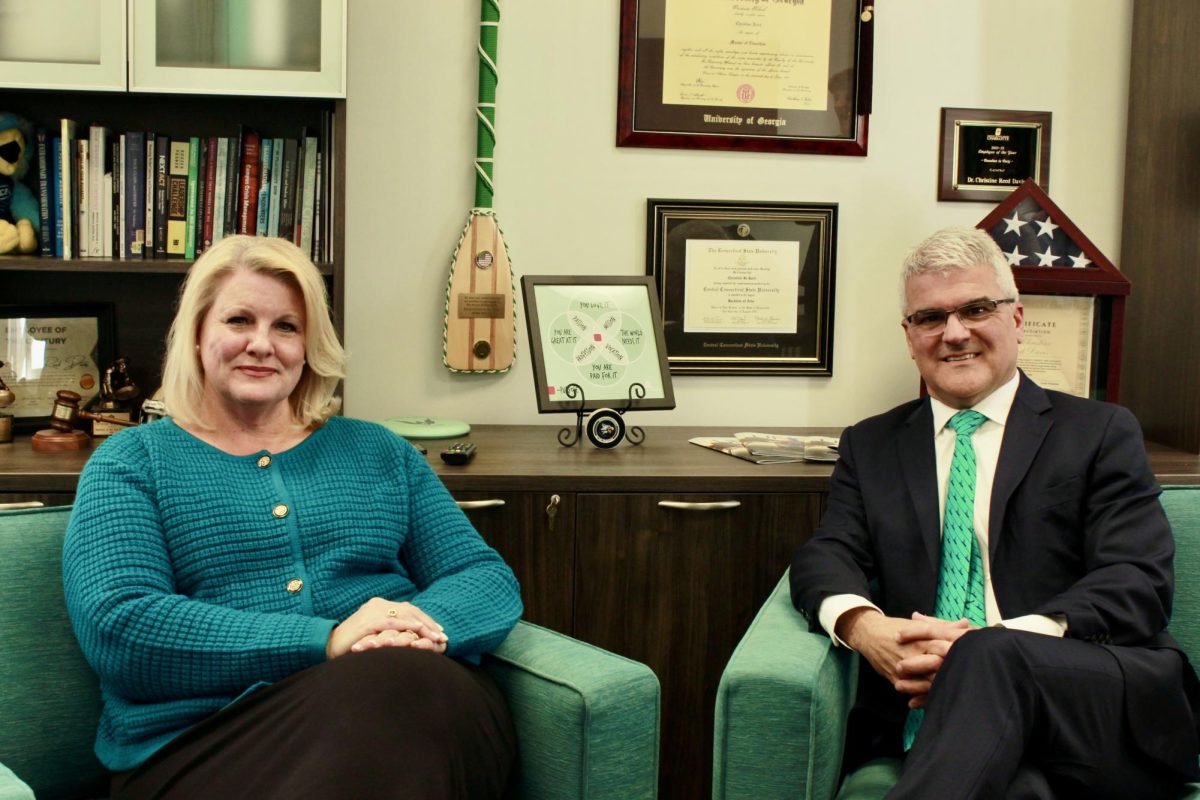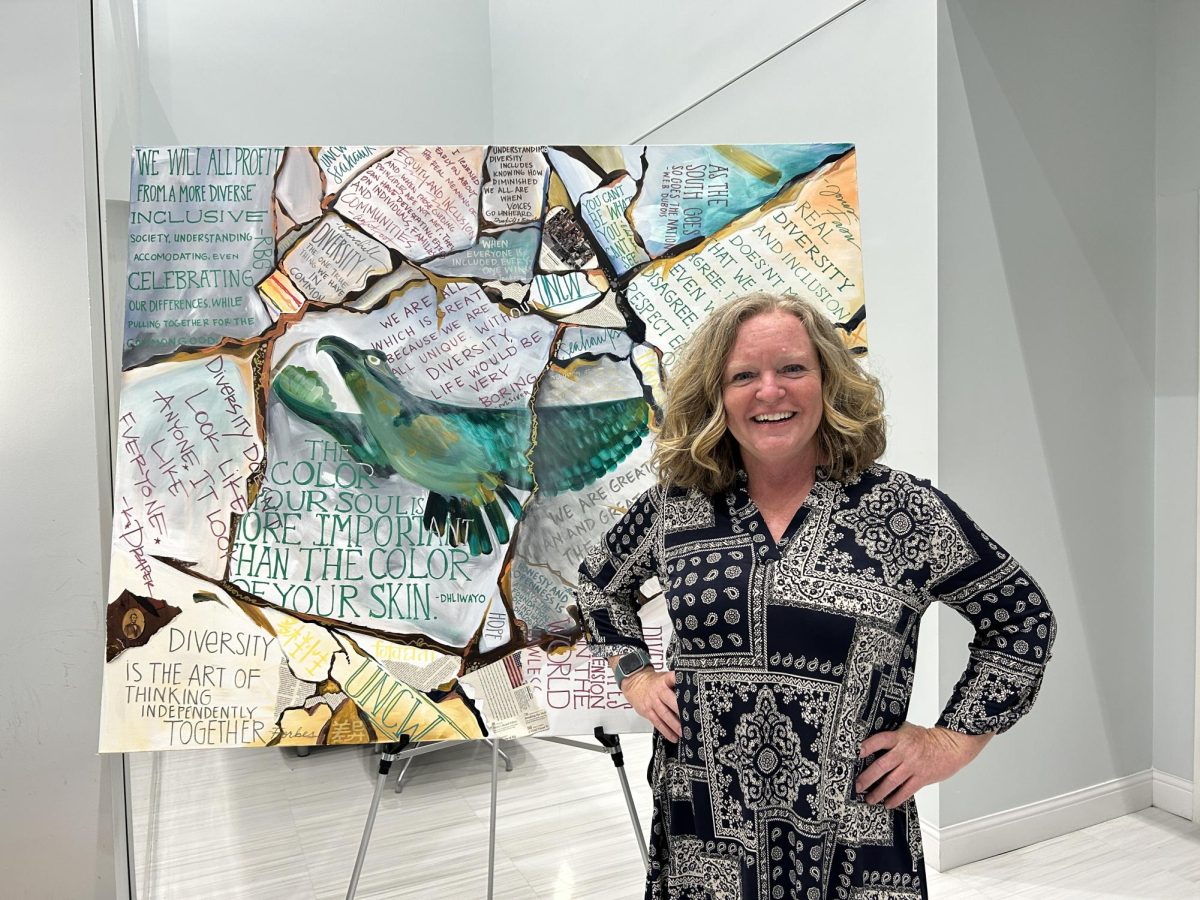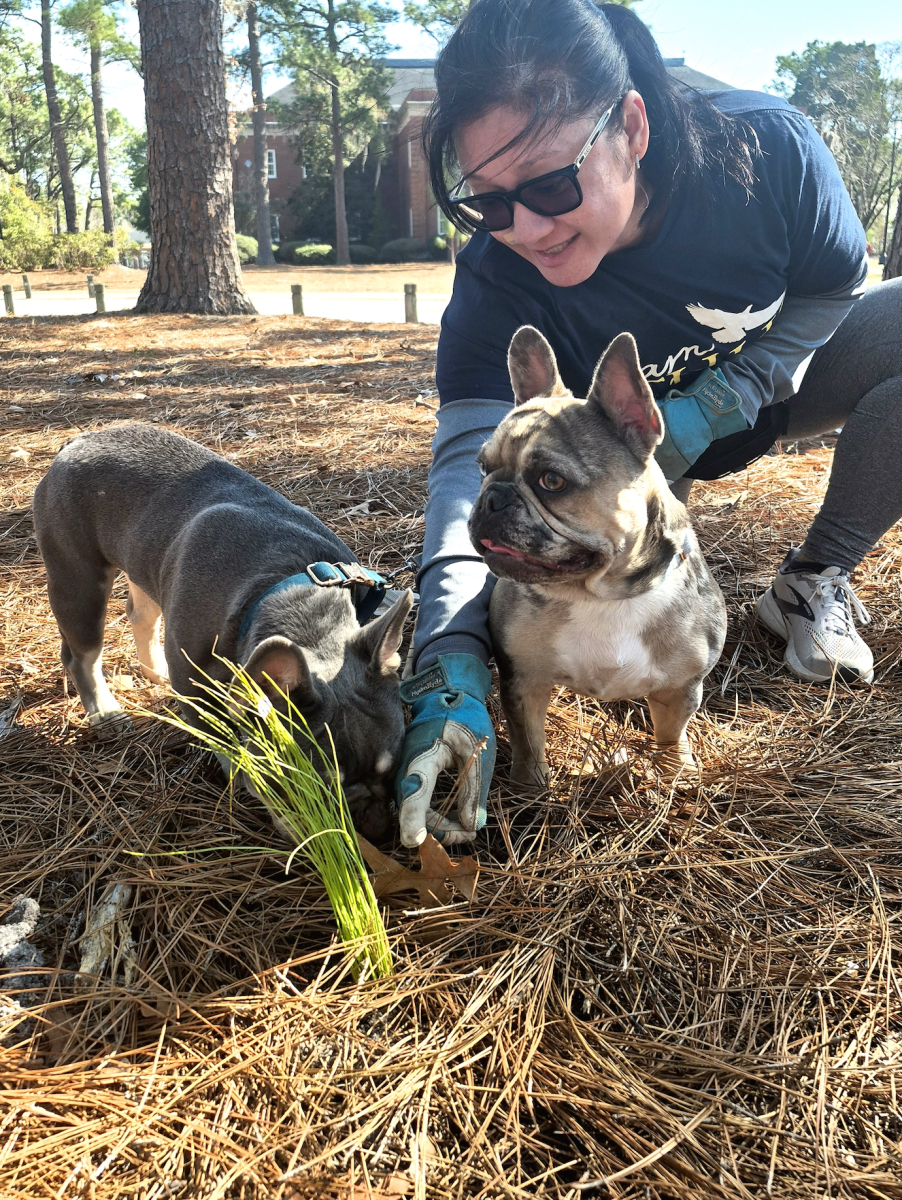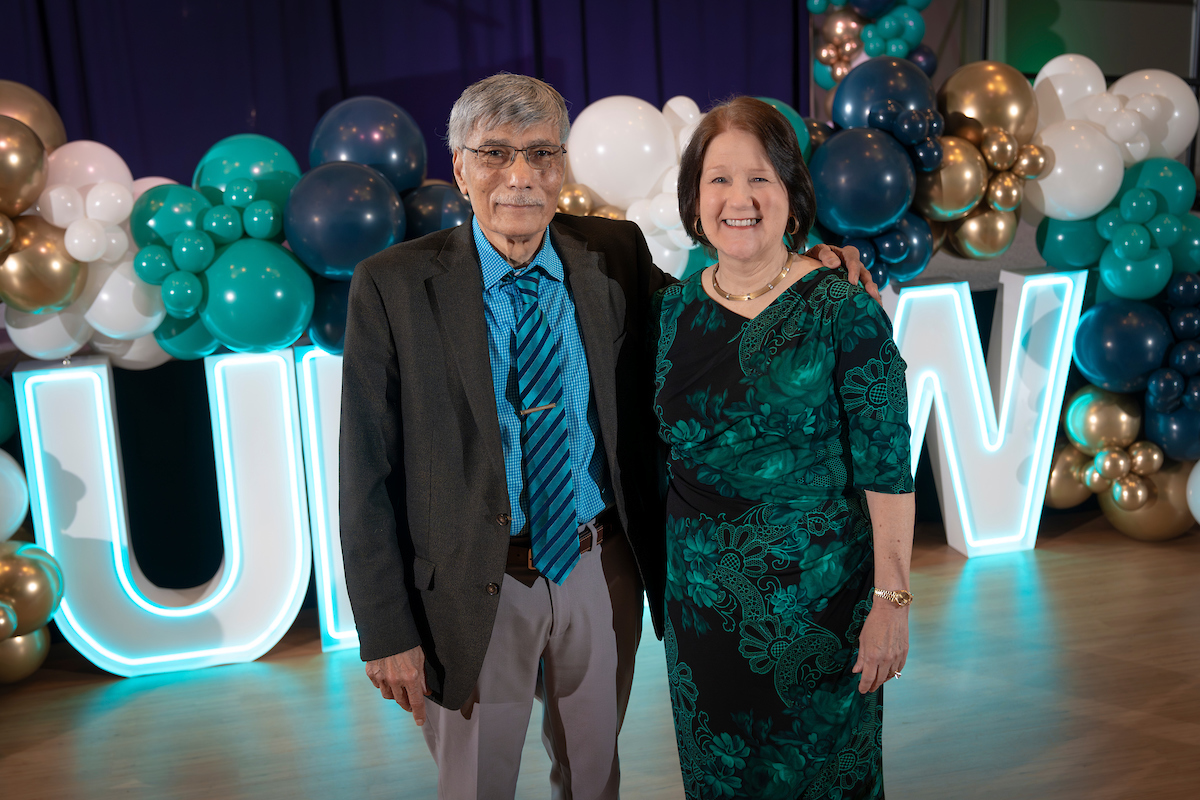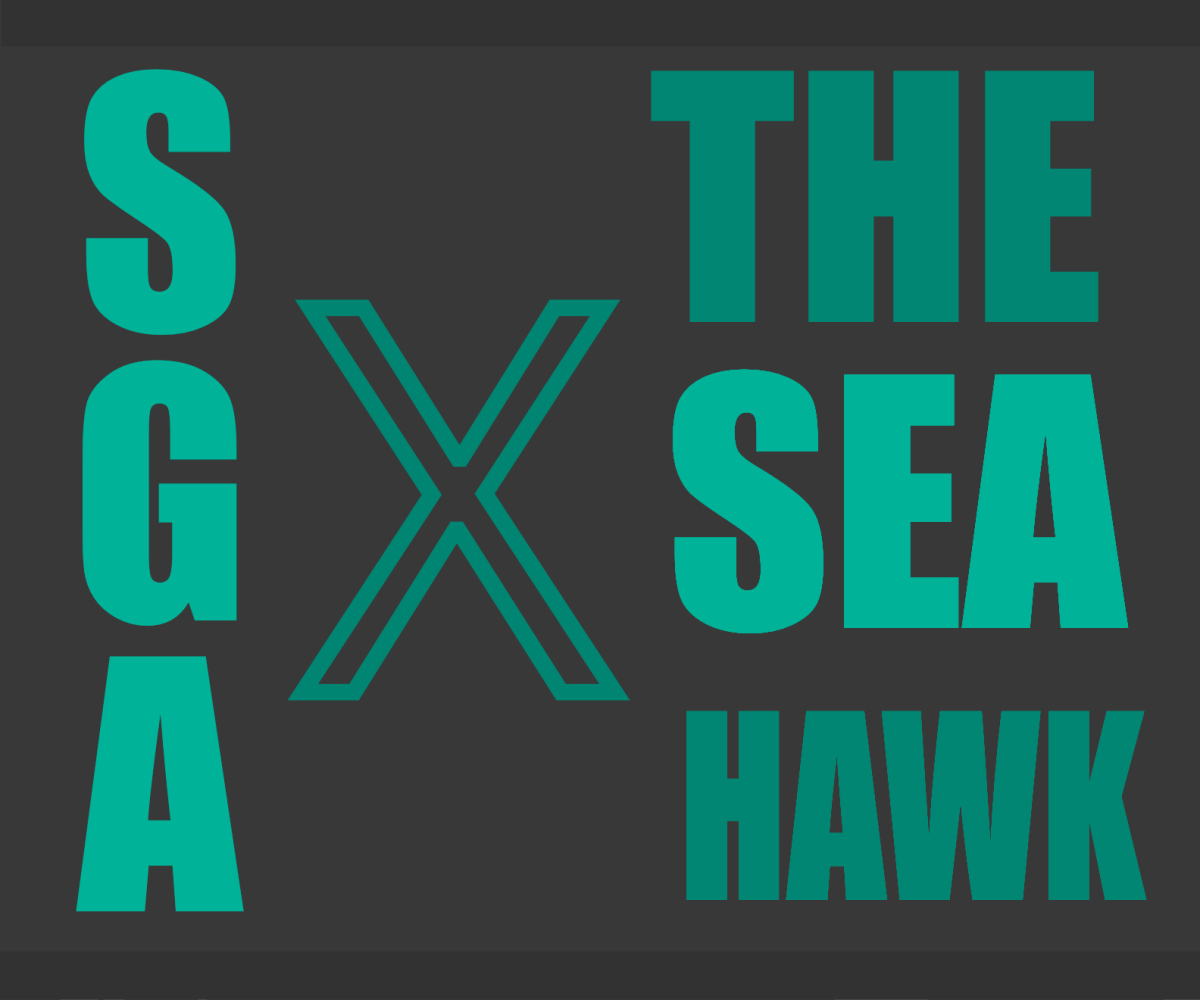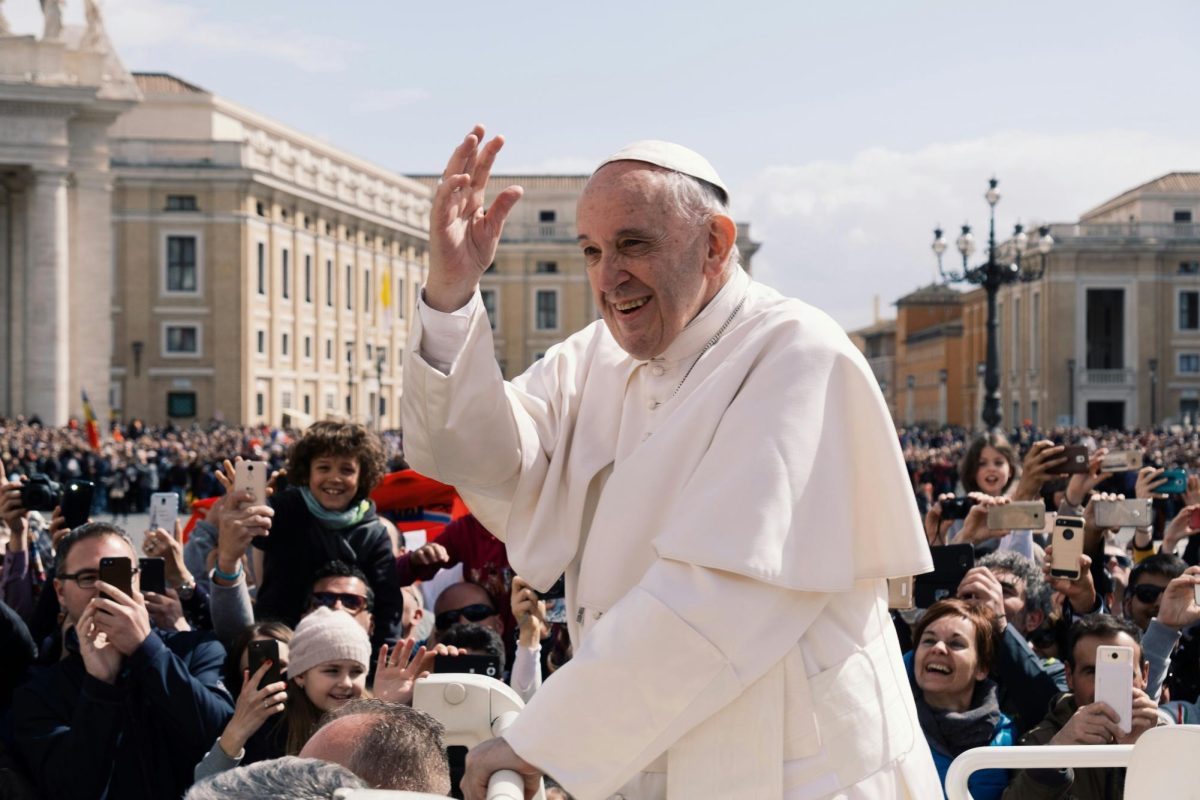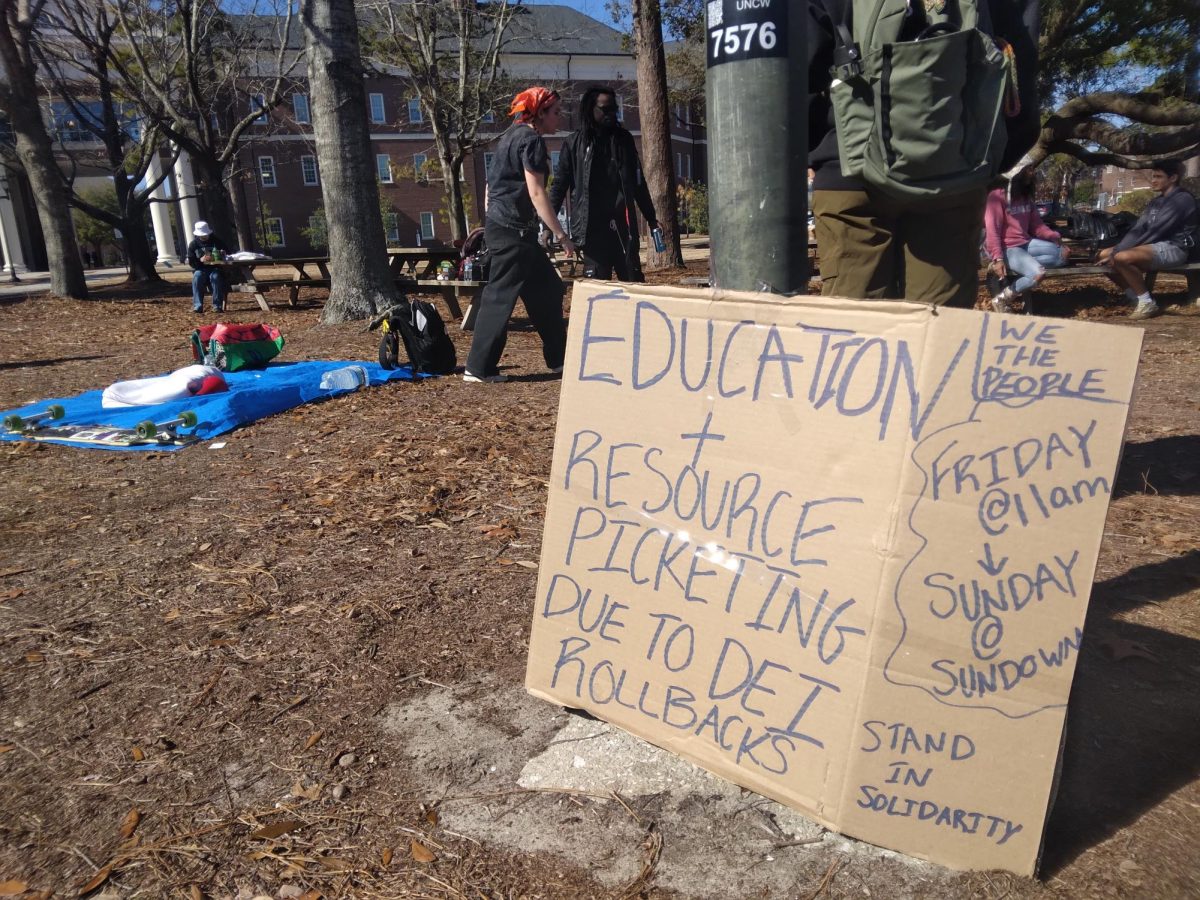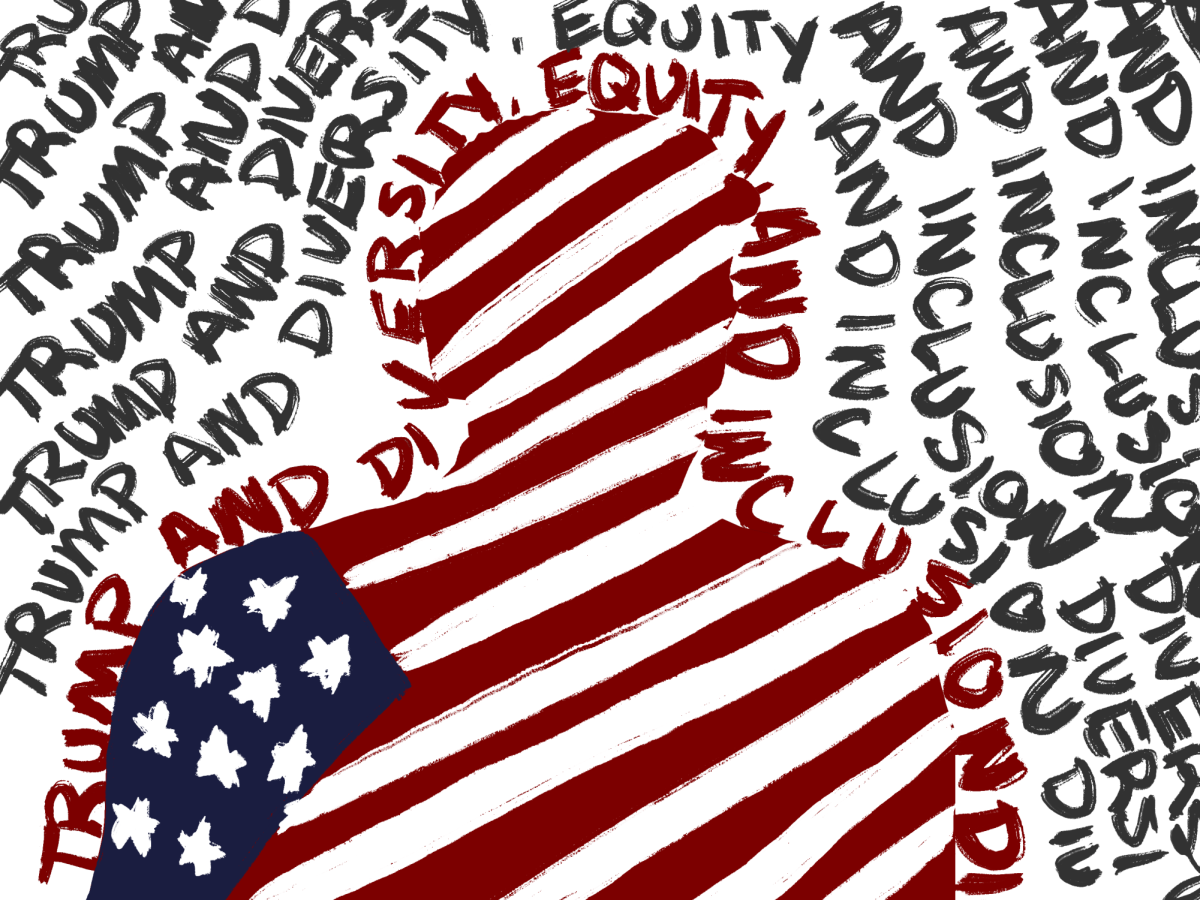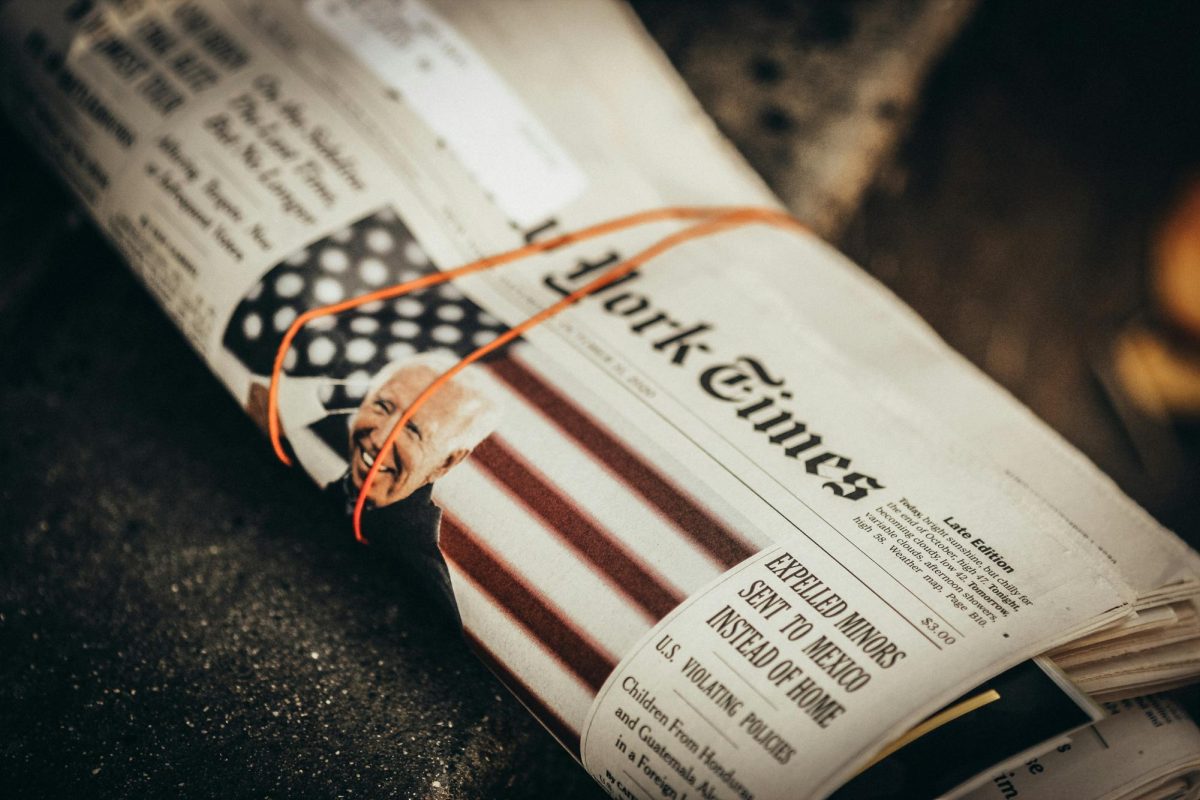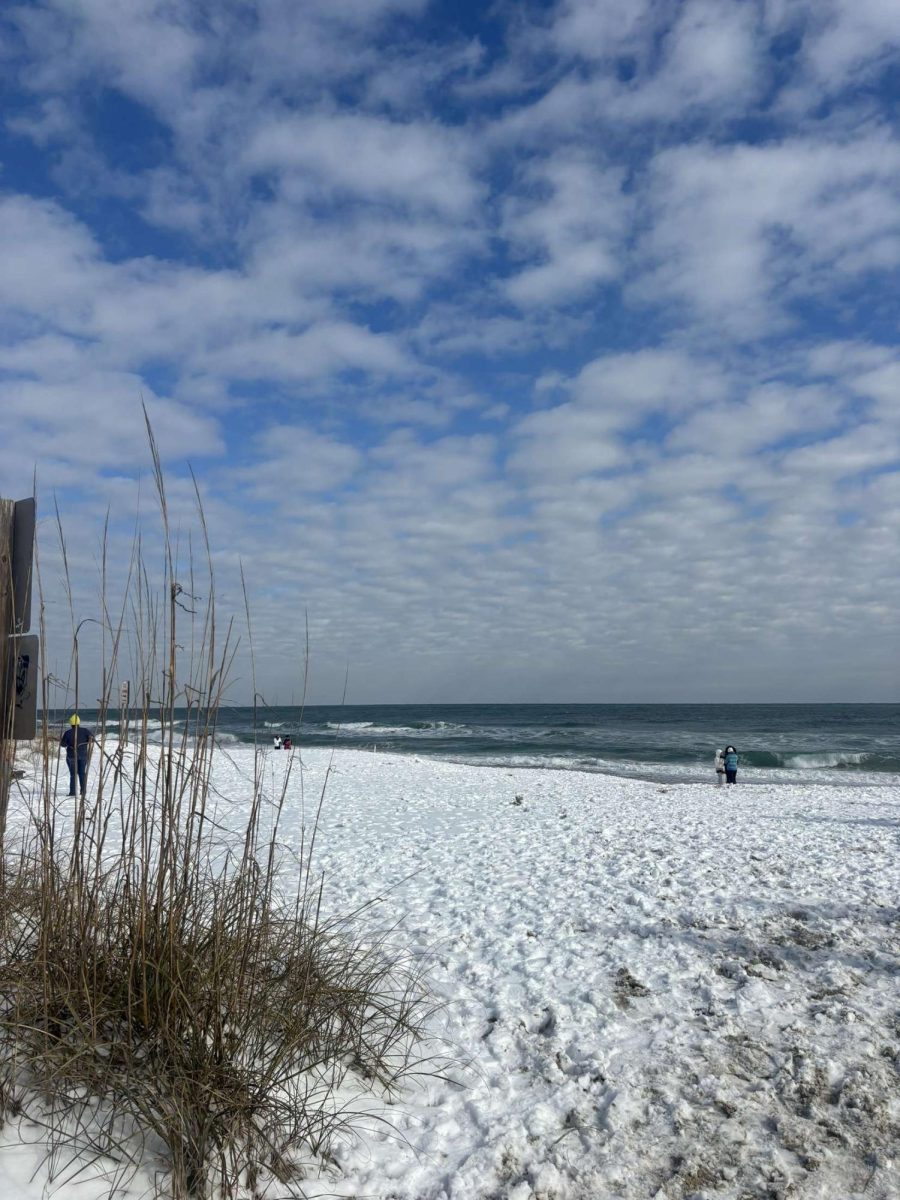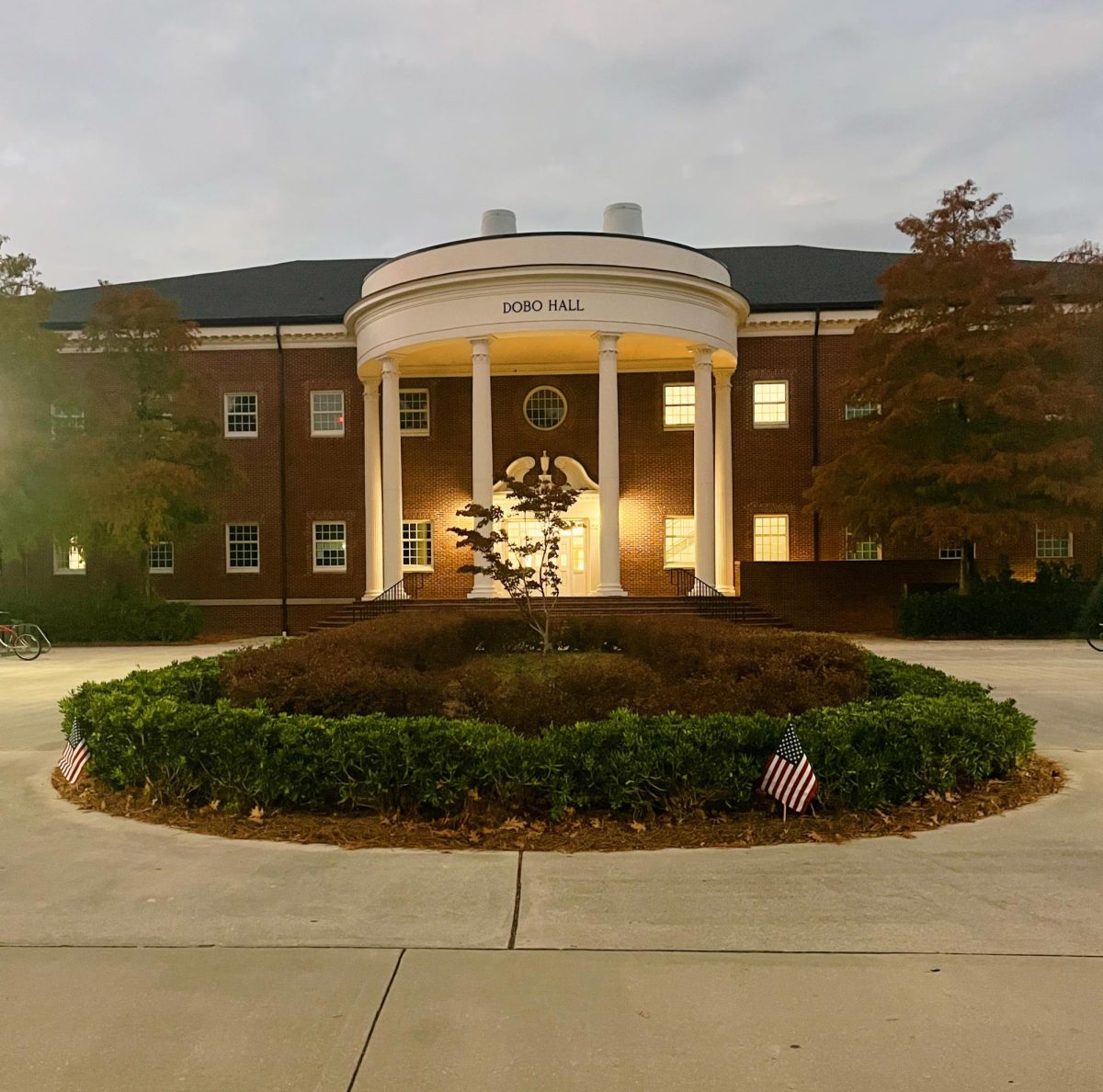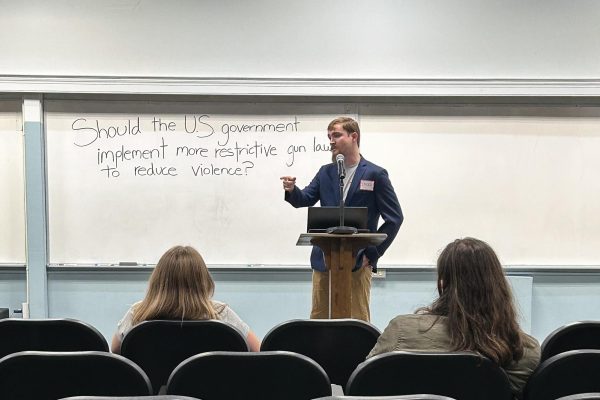
On Nov. 8, UNCW hosted an open debate for students on a prominent political issue that has divided American citizens for years: Should the United States implement more restrictive gun laws to reduce violence?
The event was hosted by Braver Angels, an organization that aims to promote unity and civil conversation among American citizens on a variety of political issues. Braver Angels is part of a larger organization known as the College Debates and Discourse Alliance. Sadie Webb, a program manager for the Alliance, explained why she believes Braver Angels debates are beneficial.
“Braver Angels debates give people an opportunity to practice engaging with one another in a respectful way,” Webb said. “That is what we want to do if we want to make any progress and change in our country.”
Webb also stated that she believes these debates are especially beneficial for college students to take part in because college is one of the first opportunities for young people to engage with ideas that they have never encountered before. Additionally, she explained that it is essential for students to have a space to practice engaging with ideas they disagree with respectfully.
Mckenna Beard, a UNCW student who worked with Braver Angels to promote and plan this debate on campus explained why it is important for UNCW to host events such as these.
“I think this event is important due to the growing polarization we have here in America,” Beard said. “As the next generation, we need to work to come back together and just agree that we may not have the same opinions, but that is okay.”
The event began with Webb addressing the audience of student and faculty members to explain how a Braver Angels debate works, and how it differs from a traditional debate. Audience members were permitted, and encouraged, to go up to the podium and share their thoughts on the topic of gun control.
“This is a space for us to explore ideas,” Webb said. “Say what you believe.”
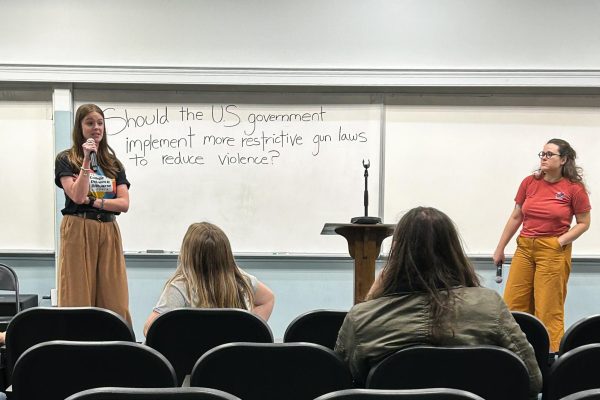
Each speaker was allotted four minutes to make their arguments. After the four minutes passed, other audience members were allowed to ask questions. To maintain civility, audience members were not permitted to address the speaker directly, instead, they were instructed to direct their questions to Webb and address her as “Madam Chair.” Additionally, question-askers were only allowed to refer to the speaker as just that—the speaker. So, rather than ask the speaker their question directly, audience members asked “Madam Chair” why “the speaker” felt the way they did.
Although the debate began with two pre-selected speakers to get the conversation going—one for the affirmative, pro-gun restriction side, and one for the negation, anti-gun restriction side—student speakers from the audience made up a majority of the conversation.
One student, Reagan Faulkner, in addition to speaking for the negation, also asked several questions to other speakers. Faulkner stated that she feels events such as these are important to have on campus because they support the purpose for which universities were created.
“[The university setting] was established,” Faulkner said. “For common discourse, for people to kind of learn from each other. [It was] the idea that people of all different backgrounds, all different identities, and all different ideas would come together on college campuses to bounce ideas off each other and learn off of each other.”
Faulkner also stated that public, two-sided debates are important because she believes that many college campuses have been censoring speech, and only allowing for certain ideologies.
Another student participant who spoke for the affirmative side, John McDowell, stated that civil debates are important in times of division.
“I think in a divided country such as ours,” McDowell said, “anytime you can have civil discourse with people with opposing viewpoints you can learn things from that. Anytime you can learn things about contentious issues, that is going to move us forward as a society.”


